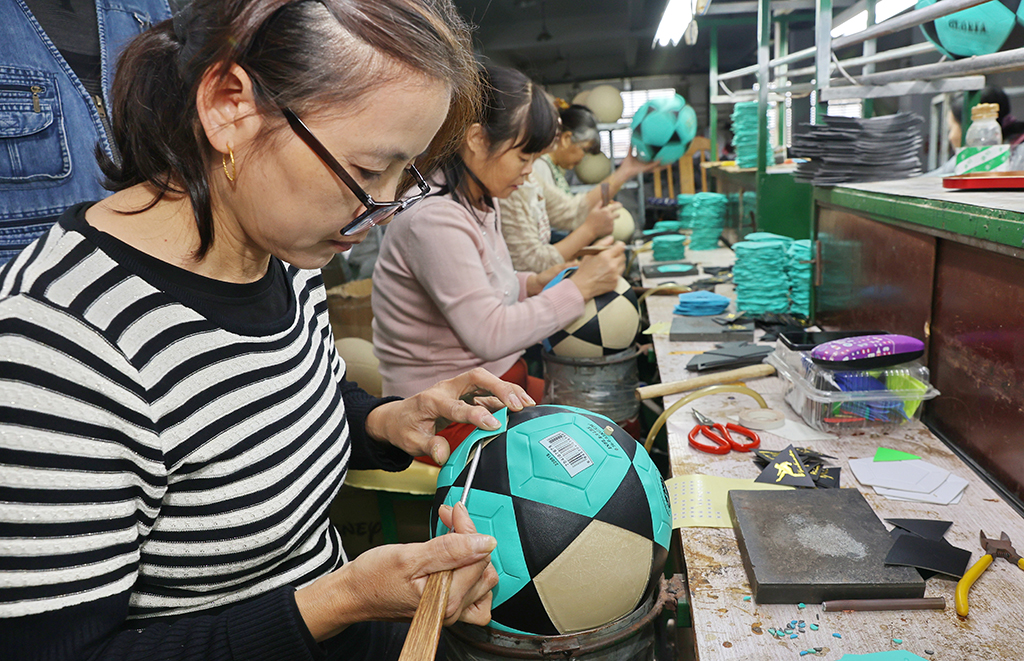BEIJING: China's factory activity shrank for a second straight month in November, official data showed Wednesday, as large swathes of the country were hit by COVID-19 lockdowns and transport disruptions. The Purchasing Managers' Index (PMI) -- a key gauge of manufacturing in the world's second-biggest economy-came in at 48.0, down from October's 49.2 and well below the 50-point mark separating growth from contraction, according to data from the National Bureau of Statistics (NBS).
China is the last major economy welded to a zero-COVID strategy of eliminating outbreaks with strict quarantines and mass testing even as infections reached record highs this month, dragging down demand and business confidence. "In November, impacted by multiple factors including the wide and frequent spread of domestic outbreaks, and the international environment becoming more complex and severe, China's purchasing managers' index fell," NBS senior statistician Zhao Qinghe said in a statement.
November's figure was lower than the 49.0 reading predicted by Bloomberg analysts. The manufacturing PMI has been in contraction territory for all but four months of the year so far, as a summer of heat waves was bookended by COVID lockdowns in major cities during the spring and autumn. Zhao said domestic outbreaks in November caused "production activity to slow down and product orders to fall", noting "increased fluctuation in market expectations".
Activity fell at businesses of all sizes during the month, with the PMI for small enterprises hit hardest at 45.6. The non-manufacturing PMI came in at 46.7 points in November, also reflecting a contraction in activity and down from 48.7 points in October.
Zhao said that for transport, accommodation, catering and entertainment in particular "the total industry business volume fell significantly", as "some regions saw a relatively large impact from the pandemic". Chinese leaders have set an annual economic growth target of about 5.5 percent, but many observers think the country will struggle to hit it, despite announcing a better-than-expected 3.9 percent expansion in the third quarter.
Meanwhile, rare nationwide protests have erupted among a population exhausted by almost three years of zero-COVID, while authorities have offered mixed messages on transitioning away from the strategy. "The virus situation continues to cloud the economic outlook," Sheana Yue, China economist at Capital Economics said in a note on Wednesday. "Most cities have taken to implementing localized lockdowns, similar to the ones we saw in April, which will continue to weigh heavily on services activity," Yue said. She warned, "there is little upside that might offset the weakness," with a global downturn putting pressure on export-focused businesses in China.
Meanwhile, The International Monetary Fund may have to slash its growth forecasts for China, managing director Kristalina Georgieva warned Tuesday, after protests erupted opposing Beijing's strict policies to combat COVID.
"There is indeed the possibility that, in this time of very high uncertainty, we might have to revise these projections down," Georgieva said, referring to the fund's forecasts for China. In October, the IMF cut its projection for the world's number two economy to 3.2 percent this year as it is weighed down by COVID-zero policies, as well as a slowdown in the property sector.
It projected China's growth would rise to 4.4 percent next year. Beijing's tough approach involves compelling local governments to impose snap lockdowns and quarantine orders, and limit freedom of movement in response to minor outbreaks. Demonstrations not seen in decades erupted in major cities at the weekend opposing COVID lockdowns and demanding greater political freedoms.
Georgieva, speaking in Berlin after meeting Chancellor Olaf Scholz and heads of other international financial organizations, said China was "looking into its zero-COVID policy with a perspective to shift to more targeted response to COVID cases". This was aimed at ensuring "less interruptions to the Chinese economy, and less negative spillover for the rest of the world," she said. "We have been supportive of looking into what China can do to make its COVID policy more effective for China itself and for its role in the world economy." - AFP











